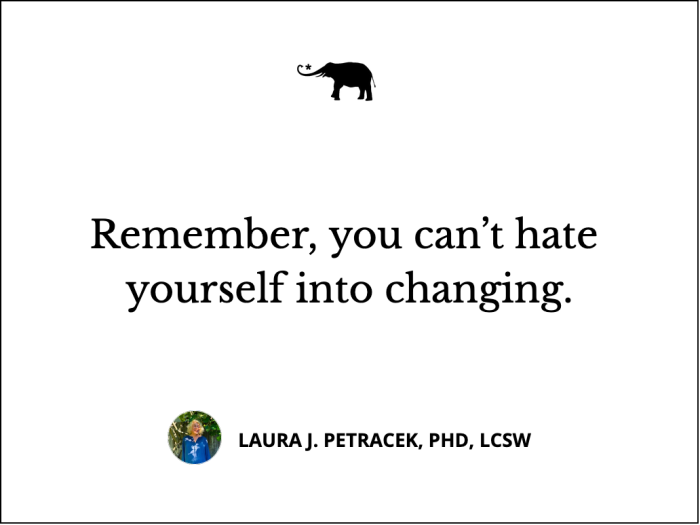Radical Acceptance means to stop fighting reality, responding with impulsive or destructive behaviors when things don’t go your way, and letting go of the bitterness that is keeping you trapped in a cycle of suffering.
When I heard the quote “pain is inevitable; suffering is optional” during a dialectical behavioral therapy group, a light went off in my head. I’ve heard this saying many times in Alcoholics Anonymous / Narcotics Anonymous meetings over the years, but the how to not suffer always eluded me. Although pain is part of life, it is focusing on that pain that causes suffering. Our thoughts and perceptions about the situation also cause suffering. Unfortunate events, problems, and disappointments are like arrows that cause pain. For example, suffering may be self-deprecating thoughts, self-blame, or getting down on yourself.
Learning and applying Radical Acceptance (for example, stop fighting reality) and DBT skills have changed how I relate to my thoughts and emotions, which has helped reduce my suffering greatly. I am so grateful. Having struggled with depression and mental illness most of my life, acceptance is a form of self-compassion. Before attending the DBT program, I had little self-compassion. Now, I have a photo of myself as a child on my nightstand. When I find myself having unkind or judgmental thoughts about myself (awareness is half the battle), I say loving words to her, and it helps me course-correct. Don’t believe everything you think!
Practice meditation and relaxation techniques like breathing deeply, scanning your body and noticing where you feel tight, repeating a mantra, walking while meditating, practicing mindfulness, engaging in prayer, or reading and reflecting.
- Forgive yourself by admitting you made a mistake.
- Acknowledge reality by practicing honesty.
- Accept your humanity and imperfections as they are the touchstones for growth.
- Say to yourself, “I have no power over the past, the truth, and you.”
Here is a writing prompt that can help you with this journey. Describe a situation you had trouble accepting and what skill(s) you used to cope with the reality of the problem. After you’ve written about the situation and the skill(s) you used, evaluate how helpful each skill was on a scale from not helpful to extremely helpful.
Remember, you can’t hate yourself into changing. Renowned psychologist Carl Rogers once said, “The curious paradox is that when I accept myself just as I am, then I can change.
For more information on these concepts and more skills, please refer to The DBT Workbook for Alcohol and Drug Addiction: Skills and Strategies for Emotional Regulation, Recovery, and Relapse Prevention.

 Share on bsky
Share on bsky





Read 1 comment and reply